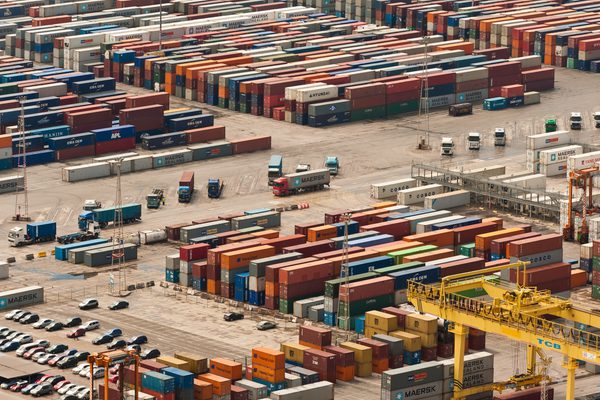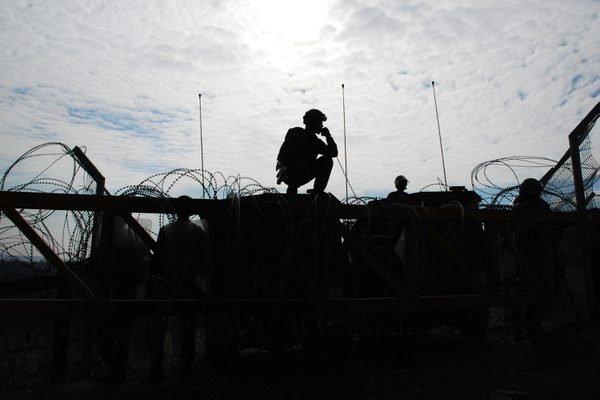Governments must consider the risks of sending migrant workers to conflict zones
26 January 2024

This month, officials from India’s largest state, Uttar Pradesh, and Haryana (which neighbours Delhi) are hosting a delegation of Israeli businesses seeking workers from the two states for jobs in Israel. The Israel Builders Association requested Indian workers to replace Palestinian and other workers who have been displaced, laid off, or may have died during the ongoing conflict. The reported salary is generous by Indian standards.
Indian unions and labour rights activists have already expressed grave concern. Most Indian migrant workers who go to conflict-prone regions are required to register with India’s e-migrate system, which is intended to ensure the safety and security of workers abroad. Israel is not currently included in that scheme, which may leave up to 100,000 Indian workers at risk if they move there for employment opportunities.
While previous government-to-government agreements facilitating the movement of Indian workers to Israel have been commended, the current proposal's timing given the ongoing Israel-Palestine conflict raises many concerns. The implicit indication that Israel may be considering the replacement of Palestinian workers with Indian labour is particularly troubling.
The request prompts many questions: should India decline the proposal, or is it ethically acceptable to authorise the recruitment of over 100,000 Indian workers at this time? If accepted, how do the Israeli and Indian governments intend to ensure the safety and well-being of Indian workers? How can they ensure workers won’t be involved in the building of military barracks or internment camps for prisoners?
Protecting migrant workers during conflict
The primary concern with the proposal to send Indian workers to replace Palestinian workers, whose work permits were revoked by Israeli authorities, revolves around the safety and security of the Indian workers entering the conflict zone. India’s ‘Operation Ajay’ has undertaken at least five flights and evacuated nearly 1,200 Indians from Israel in recent months. Evacuating Indian citizens from a war zone is the responsibility of India, and needs to be honoured by the warring parties under international law.
Hamas took Thai workers hostage in the early days of the conflict and some had to duck and crawl to safety. Thai and Filipino workers were among the first hostages Hamas released. Some, who were held for weeks, described the ordeal which included sleeping on hard floors and inadequate food.
Mindful of such risks, India has consistently advised against emigration to conflict zones, whether it was during the ISIS conflict in the Middle East or the Ukraine-Russia conflict. Sending predominantly low-waged workers to Israeli construction sites during wartime could be perceived as exploiting their economic desperation. Indian workers may be willing to take the risk not only because of the wage differential but also because of growing unemployment in India, although the Indian government disputes such independent estimates. Furthermore, the ambiguity surrounding the nature and duration of jobs adds to their vulnerability for exploitation, with no clear indication of the nature of any recruitment.
India requires better protections for workers abroad
Despite their substantial economic contributions through remittances, the Indian government does not have a strong track record of protecting its migrant workforce abroad.
There is an urgent need to create robust protection mechanisms to support Indian and other migrant workers in destination countries. Workers often invest substantial amounts to secure employment abroad and may have to spend thousands of dollars in expenses, ranging from local travel, agent fees, visa, flight-ticket, and others.
The Indian government's lack of a clear stance on these issues in recruitment raises questions about its commitment to safeguarding citizens and addressing implications of participating in a workforce replacement strategy amid geopolitical conflicts. Moreover, workers returning home face challenges as well due to lack of government support. The financial burden associated with returning creates a dilemma for migrant workers. Evacuating conflict zones can lead to immediate financial difficulty, loss of employment, and economic vulnerability.
On the other hand, staying in conflict zones offers higher earnings, albeit with increased risks. The lure of more lucrative jobs, enabling workers to pay off debts and save money, becomes a compelling factor. This underscores the broader challenges faced by Indian migrant workers, emphasising the need for comprehensive policies addressing immediate evacuation concerns, economic vulnerabilities, and debts.
In conflict-prone regions, women face additional risks related to safety, health, and well-being. The potential lack of gender-sensitive policies exacerbates their vulnerabilities. Addressing challenges faced by Indian migrant workers necessitates a comprehensive government strategy, which includes:
- Implementing robust financial support mechanisms, including subsidised loans and debt relief programs.
- Transparent recruitment policies, accompanied by educational programs, essential to prevent exploitative practices.
- Bilateral agreements with destination countries that prioritise workers' rights, ensuring safe conditions, fair wages, and timely repatriation.
- Strengthening embassy support, particularly through accessible community welfare funds and essential services.
Standards to protect migrant work rights
Adopting a cautious approach and refraining from hasty decisions amid ongoing conflicts is a prudent strategy for India. As a significant sending country grappling with rising local unemployment, the government must carefully weigh the potential risks and benefits of any labour migration initiative.
Balancing the needs of migrants with the broader economic and geopolitical context is essential for making informed and responsible decisions in the interest of both the workers and the nation.
In line with the Dhaka Principles- for Migration with Dignity, it is imperative that migrant workers are afforded secure and respectable working and living conditions. Additionally, these workers must be granted access to a grievance mechanism, ensuring that those whose rights have been infringed upon can seek redress through a fair, well-informed, and respectful process.
At minimum, a home government policy consistent with international human rights standards should include:
- Respect for workers’ choice: In designing any policy, the needs of workers should be central, and their autonomy and agency should be respected.
- Protection from exploitation: Authorities should work with employers to ensure contracts are clear and transparent and respect workers’ rights, in particular, their safety.
- Access to information: Workers should have information about risks inherent in going to countries that are Conflict-Affected High-Risk Areas (CAHRA). Given the current conflict, Israel should be included on that list.
- Avoidance of complicity: Governments should prevent recruitment of workers that in any way increases conflict risks, including aiding and abetting the military by working on construction projects intended to advance military objectives. This includes participating in constructing prisons or internment camps.
- Guarantee of safe return: Home governments should have policies and procedures in place to evacuate citizens and their dependents at short notice to safety.
India and other labour-exporting countries should prioritise the protection of migrant workers, especially during conflicts. Establishing and enforcing robust bilateral agreements that prioritise the safety, rights, and fair treatment of workers in destination countries is essential. The Indian government's struggle to effectively address these challenges during conflicts underscores broader challenges to protecting and supporting its migrant workforce. This reality highlights the need for more comprehensive reforms in India and in other countries around the world.





